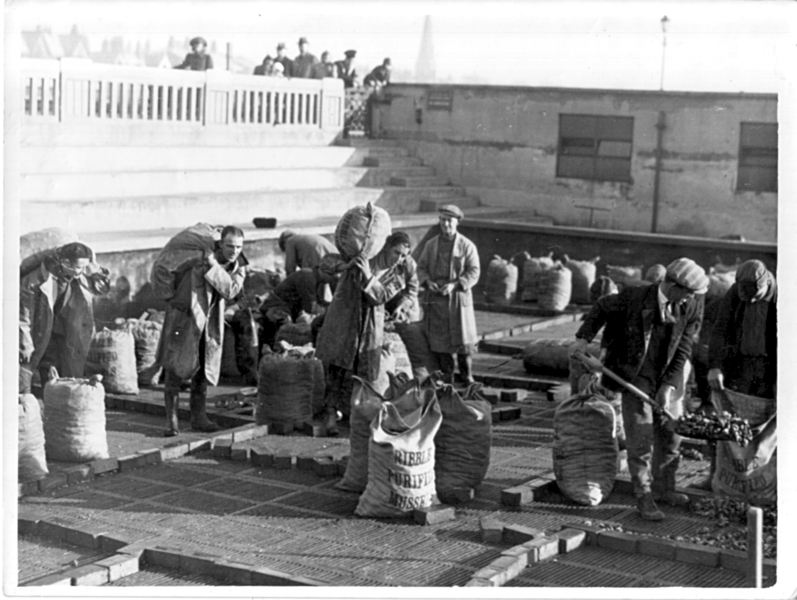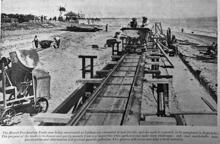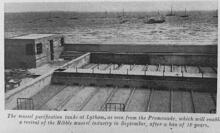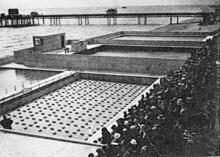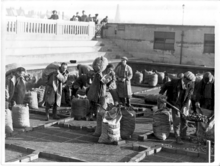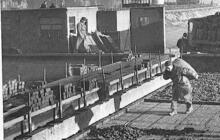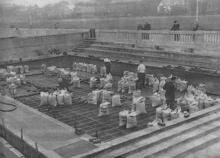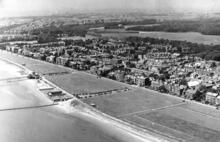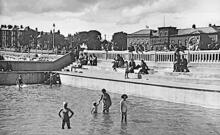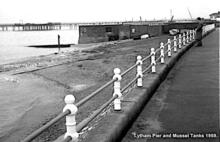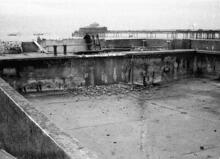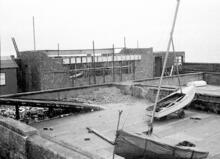By the early 1900s, the Ribble Estuary had become increasingly polluted. This lead to several outbreaks of food poisoning from people eating shellfish caught in it. Lancashire County Council took action and set about building a set of cleaning tanks at the then considerable cost of £8,000, to be used by the Lytham and Banks Fisherman’s Co-operative Society. They were opened at a special ceremony by the chair of the Mussels Purification Sub-Committee in 1935. A law was passed to prevent anyone selling mussels that had not been carefully cleaned. By 1946, 12,000 bags of mussels were being processed each year.
There were three open air tanks, each fulfilling a separate process: a storage tank, a chlorination tank and a cleansing tank. Mussels were brought from all around the local coast, including from the large mussel beds of Morecambe Bay.
The tanks fell into disuse in the 1940’s and in 1957, the tanks were decommissioned as changes in the Ribble estuary meant that it wasn’t possible to harvest mussels from there any more. They were replaced by a new Lytham Lifeboat station, the Ribble Cruising club, and The Anchorage restaurant.
If you have additional information or pictures that may usefully added to this page then please get in touch with us.
